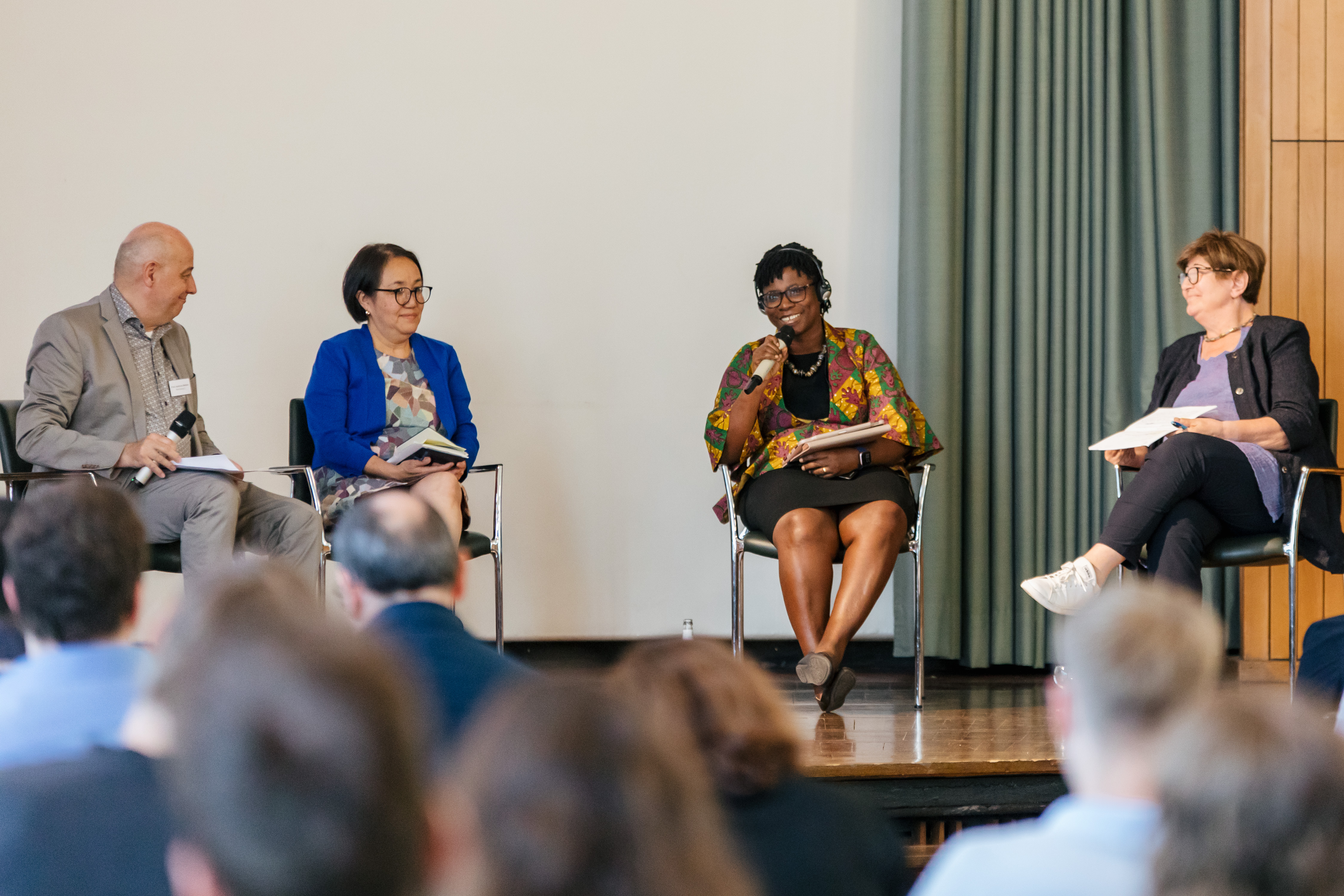How can global partnerships be decolonized by universities in Baden-Württemberg? And what role do state politics and university structures play in this? These and other questions were discussed by participants from politics and universities at the Sustainable Development Goals (SDG) University Day Baden-Württemberg. Mutual respect, but also the elimination of structural asymmetries between research partners from the "Global North" and the "Global South" were two of the demands that emerged from the SDG University Day.
On the 16th of June 2023, the SDG University Day took place at the Albert-Ludwigs-University Freiburg. The Africa Centre for Transregional Research (ACT) organized the event in cooperation with the Arnold-Bergstraesser-Institute. More than 170 visitors and representatives from universities and politics discussed how North-South partnerships can be decolonized in the higher education sector within the framework of the 17th Sustainable Development Goal "Partnerships for the Goals". In her opening speech, the Rector of the University of Freiburg, Kerstin Krieglstein, focused on the importance of global partnerships to achieve the UN Sustainable Development Goals. She emphasized that the University of Freiburg wants to further expand global cooperation and, in doing so, look even more to the "Global South" in the future. The welcome by the Mayor of Freiburg, Martin Horn, was followed by a diverse program of discussions, speeches and interactive workshops.
In her keynote address on decolonizing partnerships at universities, Science Minister Petra Olschowski said that the state of Baden-Württemberg is committed to its historically grown responsibility. "Decolonizing partnerships requires a fundamental will for equality, transparency and openness, and a willingness to question one's own position."
The experiences of racism, the lack of visas for researchers from the "Global South" as well as bureaucratic hurdles for cooperation, but also profit of science and universities through slavery and colonial times, were part of the subsequent open and critical panel discussion. The panelists positively highlighted the personal engagement of many university members in North-South partnerships and the good experiences among colleagues. Dr. Grace Diabah, Co-Director Ghana at the Merian Institute for Advanced Studies in Africa at the University of Ghana, Prof. Dr. Melinda Madew, Professor of International Social Work at the Protestant University of Applied Sciences Ludwigsburg, and Dr. Dorothea Rüland, Secretary General of the Hamburg Institute for Advanced Study and former Secretary General of the German Academic Exchange Service (DAAD), discussed these personal experiences with regard to partnerships between German universities and partners from the "Global South". For the future, they called for transparent and honest communication, respectful interaction, mutual respect and reciprocal knowledge transfer. Above all, however, action is needed to actually cause change.
In short flashlight inputs, five university members gave insights into their view of the topic. Core concerns included improved framework conditions for global research cooperation and the diversification of knowledge and teaching. Demands also included the decolonization of university structures and the abolition of tuition fees. The importance of diverse voices being heard was emphasized. Minister Olschowski responded to the lightning talks afterwards. She promised to carry the diverse impulses into the discussions with Baden-Württemberg's university rectors.
The afternoon workshops offered all visitors of the University Day the opportunity to continue and deepen the discussion on selected topics. The focus was on the decolonization of knowledge production, university structures, research cooperation and the curriculum.
The recognition of knowledge and research methods from the "Global South" and access to data, scientific networks and publications are two of the concrete demands from the workshops. Furthermore, long-term partnerships and their financing should be promoted. The most important points from the workshops and the further implementation were discussed by university and political leaders in a final discussion. The essence of the discussion was that internationalization and cooperation with the “Global South” is not a nice-to-have, but must be promoted as a systematic approach.
The Market of Opportunities, which accompanied the University Day, offered space to get to know various organizations and initiatives and to network. 28 Baden-Württemberg initiatives from universities and civil society that are connected to the SDGs or are committed to the de-colonization of universities presented themselves to the visitors.
Overall, many experiences were exchanged and concrete future steps were discussed at the SDG University Day. The University Network for Global Partnerships Baden-Württemberg will continue the discussion.








